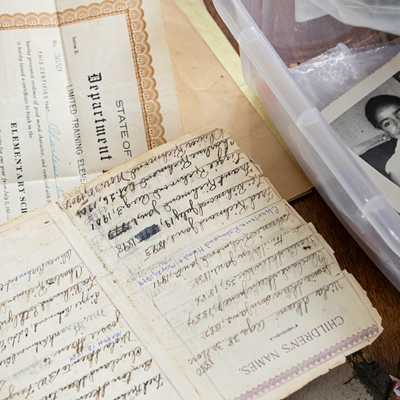A SCAD professor and alumnus (1993) Jason Maurer has co-written and co- directed an animated feature film now in studios nationwide.
The film, Delgo, a retelling of the familar Romeo and Juliet story set in a fantasy world, was made by the comparatively small indie animation house Fathom Studios in Atlanta. It features voiceover talent from Freddie Prinze, Jr., Jennifer Love Hewitt, Malcolm McDowell, and even the late Anne Bancroft.
We caught up with Maurer recently, who has taken leave from Fathom in order to teach again at SCAD. He’s currently working with students on off-campus projects.
You’ve said “film has a social responsibility.” In writing Delgo, how did do you balance this credo with the parallel need to entertain a paying audience?
Jason Maurer: I believe that all filmmakers, especially animators, have a responsibility to our culture to remind them of the great things it does and the terrible things it does. We are the visual moral compass. so to speak — we have a responsibility to our audience to entertain them but also to make them question, to think about things be it through humor or tragedy.
All great stories do this, and we wanted to tell an entertaining story but address a social theme while not beating the audience over the head with it. We really looked at the central theme, which is racism, and then set about making that the main characters arc, a part of the villain’s motivation, and the major social landscape of the film.
We embedded the theme into all parts of their culture, set the stage for an explosion, and then wrote an a-typical hero to save the day. In this way we are using a similar motif as say Romeo and Juliet, but instead of warring families we have warring races with this twist: Romeo (Delgo) is racist and hates Juliet’s (Kyla) people. Now Delgo has to overcome his own bigotry in order to save the day.
You used something called “digital dailies” in production. What role did they play?
Jason Maurer: Originally we created the digital dailies to address the challenges of integration and tracking assets. This tool provided flexibility to the staff and additional sets of eyes to provide comments. So they were able to comment on not just say modeling, but also animation shots.
I can only speak to what we did at Fathom of course, but I believe the system that we created was definitely a unique, robust system not normally seen in the industry. I’m sure that every major house out there has some form of digital tracking system, but what I feel makes what we did at Fathom unique and more dynamic was that we used the power of the internet, with help from our sister company Macquarium, to build a visual tracking system that allowed us to critique shots, add notes, and see entire sequences cut together on the fly with the newest animation or lighting from anywhere in the world with only a computer and a connection.
The system of course didn’t start out as something this robust. We just wanted a simple system to track comments and let our artists see what everyone was doing — sort of an online critique. While this is the part of the system that we let the public see, what they didn’t see was the complicated, dynamic back end that I described above.
For the public, we made it like a discussion forum that they could look into — a look into the magic shop — but not comment. This generated immense interest and honestly gave me many sleepless nights initially. We wanted people to get excited about what we were doing, and how we were doing it. We wanted kids out there to follow along and see what fun and hard work making an animated film can be. I think the digital dailies achieved this.
How was this project by a comparatively little-known indie animation house able to attract such A-list voiceover talent? (Other than the paycheck, that is.)
Jason Maurer: Well, it really all came down to the script and the story we were telling. The talent really liked the story and believed strongly in the message of unity we are trying to tell. Once we had one big name, the rest began to sign on rather quickly.
Are you able to work on other animation projects while back with SCAD, or is that tabled for now?
Jason Maurer: One of the really great things about SCAD is that they encourage you as a professor to continue working on your own projects. I’m currently working on a screenplay for a feature that I hope to direct someday, and I’m finishing up a short film called The Ripening, hopefully set for the festival circuit in 2009.
Teaching right now is my job. Storytelling, animation, filmmaking — that is my life. cs




























